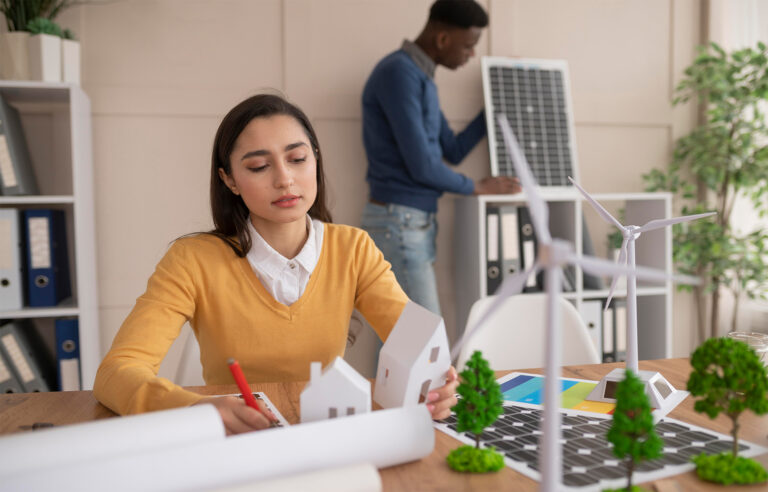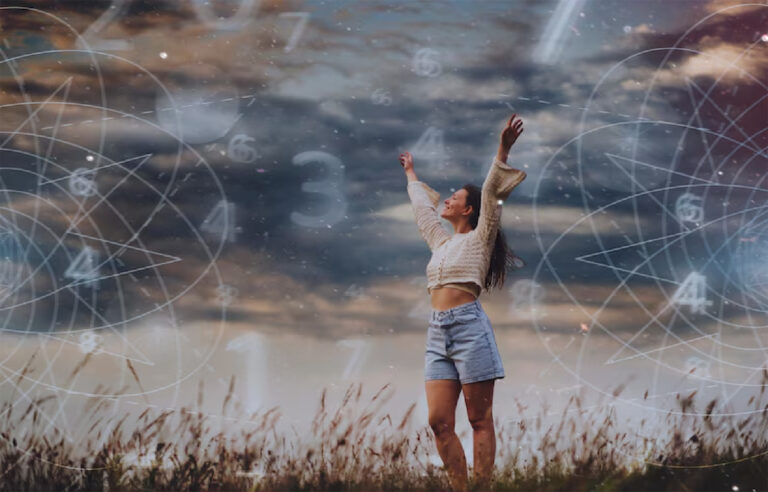AI in Interior Architecture: How Intelligent Software is Transforming Design
Introduction: In the era of smart homes and eco-friendly design, spiritual space planning is quietly returning, with a contemporary spin. Once regarded as old practices, Vastu and Feng Shui in Interior Design are affecting how architects and interior designers create spaces that feel not just practical and attractive, but also vibrant.
1. More Than Looks: Energy as a Design Factor
Modern buildings usually concentrate on shape, purpose, and eco-friendliness, but Eastern design ideas introduce a fourth aspect: the flow of energy (Chi / Prana).
- Feng Shui focuses on harmony using the Bagua map, direction, and the five elements (wood, fire, earth, metal, water).
- Vastu connects directions and elemental areas based on the Pancha Bhootas (earth, water, fire, air, space).
New Perspective: Today’s designers are quietly using energy ideas—organizing offices for efficiency, bedrooms for peace, and even kitchens for plenty, all while maintaining a simple look.

2. Modern Minimalism Meets Ancient Wisdom
While classic Vastu and Feng Shui depend on strong symbols (mirrors, crystals, water fountains), modern design simplifies these into clearer visual signs:
- Mirrors are placed to increase light and space, not just to bounce back energy.
- Zen-themed indoor water features that match nature-friendly design.
- Smart use of natural colors and materials to stabilize a space.
Design Tip: Use subtle symbols, like putting a kitchen in the southeast (Agni zone in Vastu) without clearly pointing to tradition.
3. Architectural Design with a Spiritual Framework
In upscale residential developments and boutique accommodations, architects are collaborating with Vastu/Feng Shui specialists during the design stage:
- The placement of entrances, a fundamental aspect, is now integrated with passive solar design principles.
- Central courtyards (Brahmasthan) are innovatively transformed into skylit atria.
- Window positioning is guided by orientations toward the north and east to enhance natural light and energy circulation.
4. The Psychology of Space: How Subtle Shifts Shape Mood
Research indicates that the arrangement, lighting, and colors of a space have an impact on mental well-being. Designers are now incorporating Vastu and Feng Shui in Interior Design principles to enhance psychological health:
- Minimizing clutter in the northeast, which is associated with wisdom in Feng Shui, promotes mental clarity.
- The quality of sleep is enhanced by properly oriented bed placements, with the head facing south according to Vastu.
- Home office productivity areas are now designed to reflect directional energy influences.
Exclusive Insight: High-end wellness brands are integrating Feng Shui concepts into their spa and retail spaces to affect customer behavior and increase time spent within the environment.

5. Creating a Global Perspective
In a world that intertwines cultures, contemporary design transcends the choice between East and West—it embraces a blend of philosophies. Vastu and Feng Shui are increasingly regarded not as strict rules but as adaptable design languages.
Conclusion: The future of design is not only intelligent or eco-friendly—it possesses an energetic awareness. By integrating ancient spatial insights with modern architectural expertise, designers are crafting interiors that not only appear appealing but also resonate positively. This is not mere superstition—it embodies spatial psychology infused with aesthetic intelligence.
We, at IVS School Of Art & Design, are an association with over 15 years of experience dedicated to fostering successful entrepreneurs. Our knowledgeable faculty, combined with strategic partnerships with leading industry brands, ensures that our students acquire both comprehensive understanding and hands-on skills to excel in their careers. Additionally, our alumni, who are thriving in various roles and as entrepreneurs, engage with our students to share their journeys, helping them become job-ready. We focus on delivering quality education and ensuring our students are prepared for the job market.
